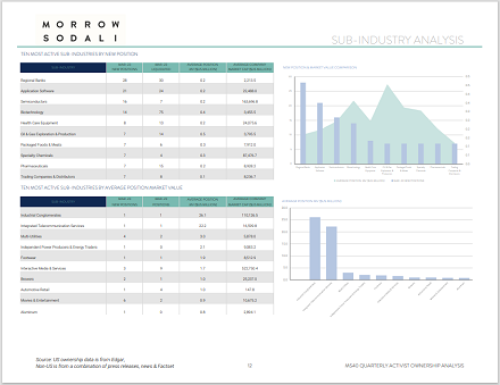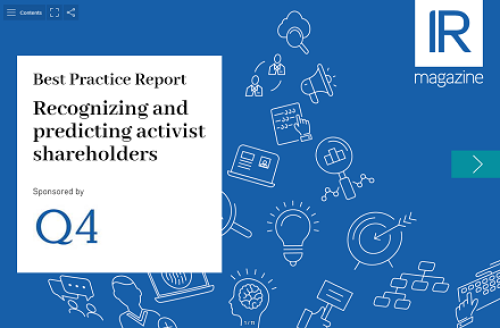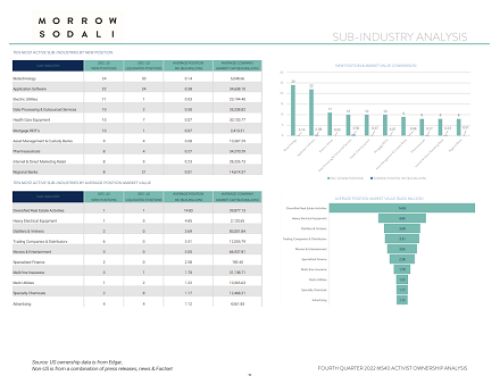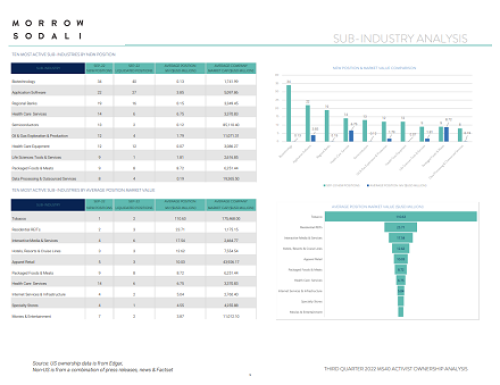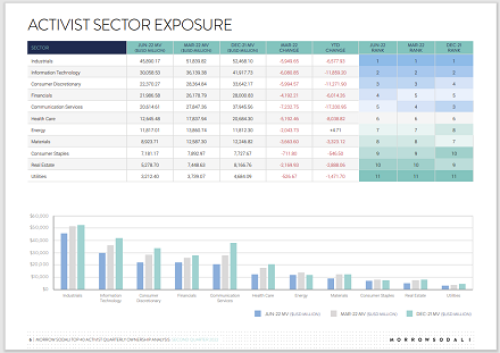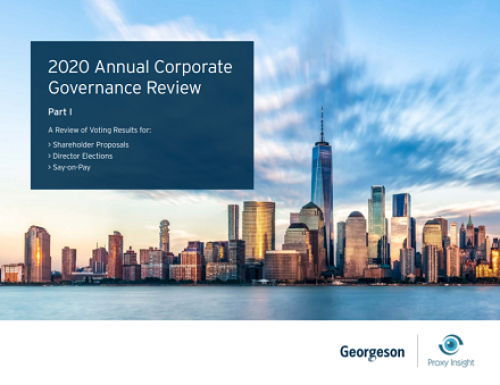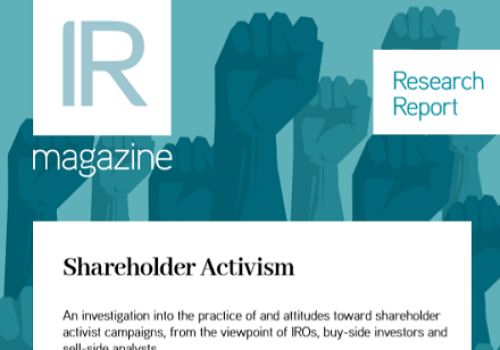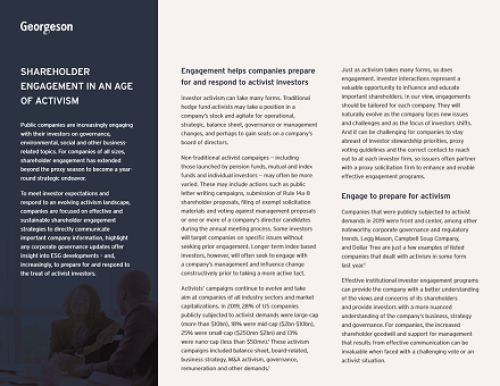Sponsored content
The latest in Q4’s popular Breakfast Roundtable series was hosted with IR Magazine on top of London’s iconic Gherkin building. We divided 50 IROs into five roundtables and tasked them with examining the top trends facing IROs: shareholder activism, the impact of Mifid II, Brexit, ESG investing and the use of alternative and Big Data.
Here’s a rundown of the key roundtable insights for every IRO to consider, as we venture into the second half of 2019.
Activist shareholders come in all shapes and sizes
Though many in the room didn’t have direct experience dealing with an activist investor – or group of shareholders – the roundtable led by Sam Cockerill, head of Europe sales at Q4, agreed that activist investors come in a variety of guises. The reality is that activists may not all ‘look like Elliott’. Cockerill recounted one approach from an industry commentator: ‘Even if they don’t have a large position or large group of investors behind them, they can still build up steam and impact the firm’s behavior and share price.’
IR should also be prepared for a variety of angles of attack. Activists may even look like a hedge fund, a single investor, a shareholder society or another organization fighting on behalf of retail shareholder rights. In fact, ‘ESG investing has opened up a new battlefield,’ said Cockerill. ‘Though it can be a vocal minority, it can drive fundamental change in the business.’
One of the best defenses against an activist investor is making sure your stock has a fair price, and that the value of your business is reflected in the share price. No matter what shape or size an activist investor, the quest to gain more value will falter if this is the case, Cockerill’s table agreed.
Mifid II hasn’t made waves, but subtle changes
For months, Mifid II was feared as the EU capital markets legislation that would cause seismic shockwaves throughout the investment universe and massive headaches for IR. But those in attendance agreed that, in general, they had not seen their day-to-day IR workings changed in any sweeping ways by the directive.
In actuality, the changes wrought by Mifid II have been more subtle. Analyst coverage has shifted in its wake, with large and small-cap companies likely noticing a small drop in numbers – if not quality. ‘New coverage, in particular, has somewhat dried up, now that some incentives to cover companies for commission have disappeared,’ said Laurie Havelock, editor-at-large at IR Magazine and another session leader. His table also reported having seen analyst coverage switch from investment banks or research houses to smaller, more bespoke providers. This all pointed to the potential of some industries, or the wider capital markets, moving to a more tailored research model.
Opinion is divided about Brexit — but not how you’d think
Tristan McKenna, Brexit session leader and Q4’s product lead for Europe, summed things up: ‘Everyone has an opinion on Brexit, and our roundtable was no different.’ People in the room were split on how the UK’s departure from the EU would look, how it would affect their company, and whether it represented a risk or an opportunity (though discussions remained more civil than their parliamentary counterparts).
The IROs at the roundtable agreed that surviving past the new deadline for the UK’s exit deal rubber-stamp – October 31 – was a ‘known unknown’, no matter a company’s sector or cap size. Yes, when it comes to post-Brexit red tape, importers might fear the worst, and companies with complicated operations across the EU might be scratching their heads. But in terms of a fair corporate valuation and the demands of shareholders, Brexit is still an unknown factor.
McKenna had a final glimmer of hope for IROs, however. ‘Optimism and Brexit don’t usually share space, particularly in London. But the general impression is that investors will have a real opportunity on their hands if they find companies that can make it unscathed past October 31,’ he noted.
ESG: With great market cap comes great responsibility
The rise of ESG investment practices has been plain to see, no matter where you sit in the capital markets. Steven Wade, IR Magazine’s conference producer, put it very succinctly: ‘For companies, thinking in terms of ESG outputs is a clear win. It’s good for business, good for long-term strategy and informs your oversight of risk.’
Though smaller-cap companies can still come under environmental scrutiny, it’s the larger-cap firms that will attract the most ESG attention, particularly under the ‘G’ for governance. ‘With a great market cap comes great responsibility: the larger your company is, the more eyeballs on you and the more responsible you have to be,’ said Wade. IR’s role is to give context behind abstract ratings or figures to tell your company’s story –even if it requires going the long way round, in terms of taking a long-term strategic approach.
With this wide horizon in mind, more than a handful of IROs agreed on the usefulness of having a dedicated ESG resource on your team, to help run themed roadshows, talk to ESG investors and prepare investor calls – though this may not yet be a full-time role.
In a Big Data world, social media has a real impact on market perception
There was a pervasive sense that the world of Big Data analysis is transforming IRO lives. One of the most impactful ways alternative data can make a real difference is with social media and market perception. ‘The rumor mill can really impact your share price, and that’s often completely out of your control,’ said Cockerill. ‘Even rumors about your peer group or competitors can have an impact on your own share price.’
So how can IROs be proactive about tackling Big Data? Cockerill said it’s invaluable to be aware of the techniques used by the investment community. His table looked to one final example: ‘There are companies that screen corporate earnings transcripts to pick up on the sentiment hidden between your words. Running your own analysis of transcripts and other disclosures can help ensure they’re water-tight.’
For more perspective on tackling the latest IR trends, please contact Sam Cockerill at samc@q4inc.com or Tristan McKenna at tristanm@q4inc.com.
Marla Hurov is content marketing manager at Q4 and blogs regularly about trends in investor relations, technology and digital communications


